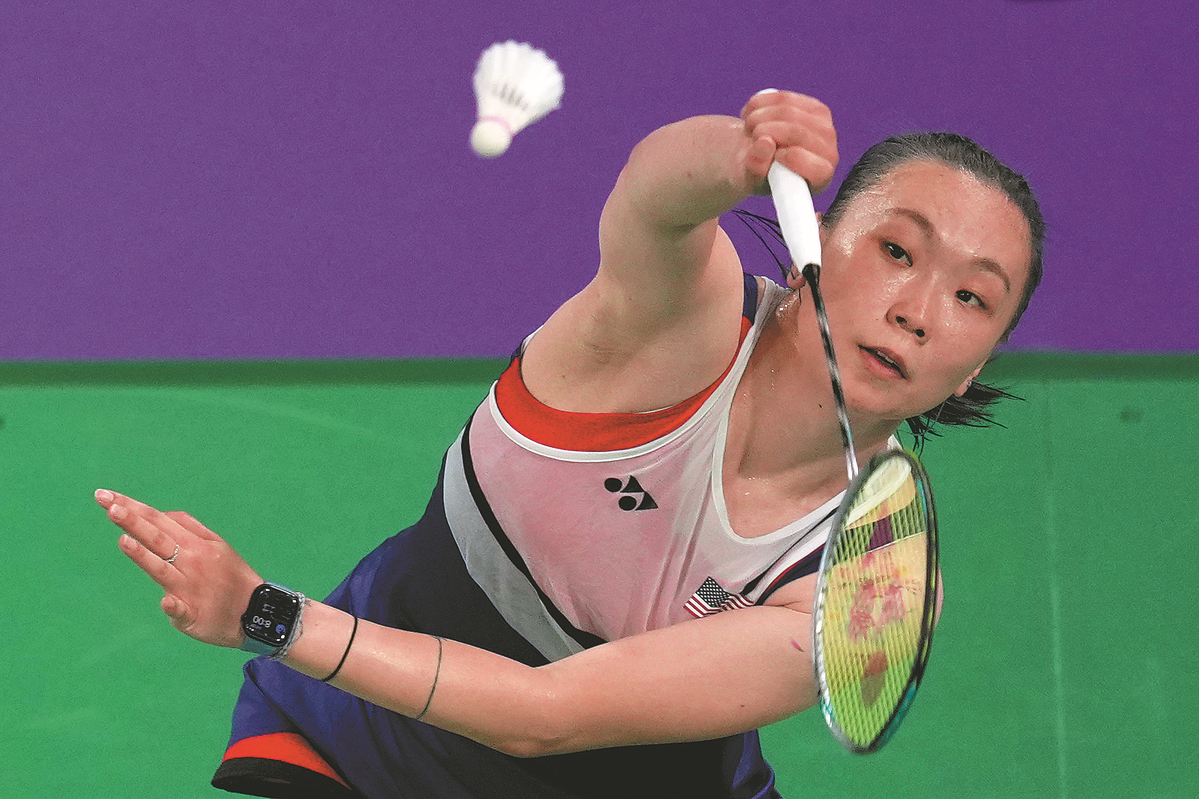Chinese-born athletes fly the flag for adopted countries
Overwhelmed by talent at home, some competitors are getting second shot at Olympic dream


Second thoughts
In addition to table tennis, Chinese names can also be found on several other countries' team lists for badminton and diving.
However, the transition to a different culture, coupled with the language barrier, can make it tough for some Chinese athletes to fit in to their adopted homes.
Zhang Beiwen, a badminton player representing the United States in Paris, said it's not always easy to navigate cultural differences, especially for those who moved overseas at an older age. "If you move to the US too late, I don't think it's worth it," said Zhang.
She started playing badminton in her hometown of Anshan, Liaoning province, and moved to Singapore along with her provincial team coach at the age of 13. Following a feud with her coach, she resettled in the US in 2013 and joined Team USA.
" (Latecomers) will have a hard time learning the language and getting used to the social environment," she said.
"It's not easy to compete at your best on the court when you have to deal with new challenges in life adapting to a new home."
Not all China-born athletes receive a warm welcome in their adopted countries, as sometimes their presence is seen as compromising the development of homegrown talent.
"There have always been some complaints from local fans," said Peter Hubner, a sports reporter covering table tennis in Paris for German media outlet Deutsche Presse-Agentur.
"They're afraid that the use of Chinese immigrants may affect the resources and funding allocated to developing native talent. It makes sense. But it will be easier for the second generation of Chinese players to be accepted."
























